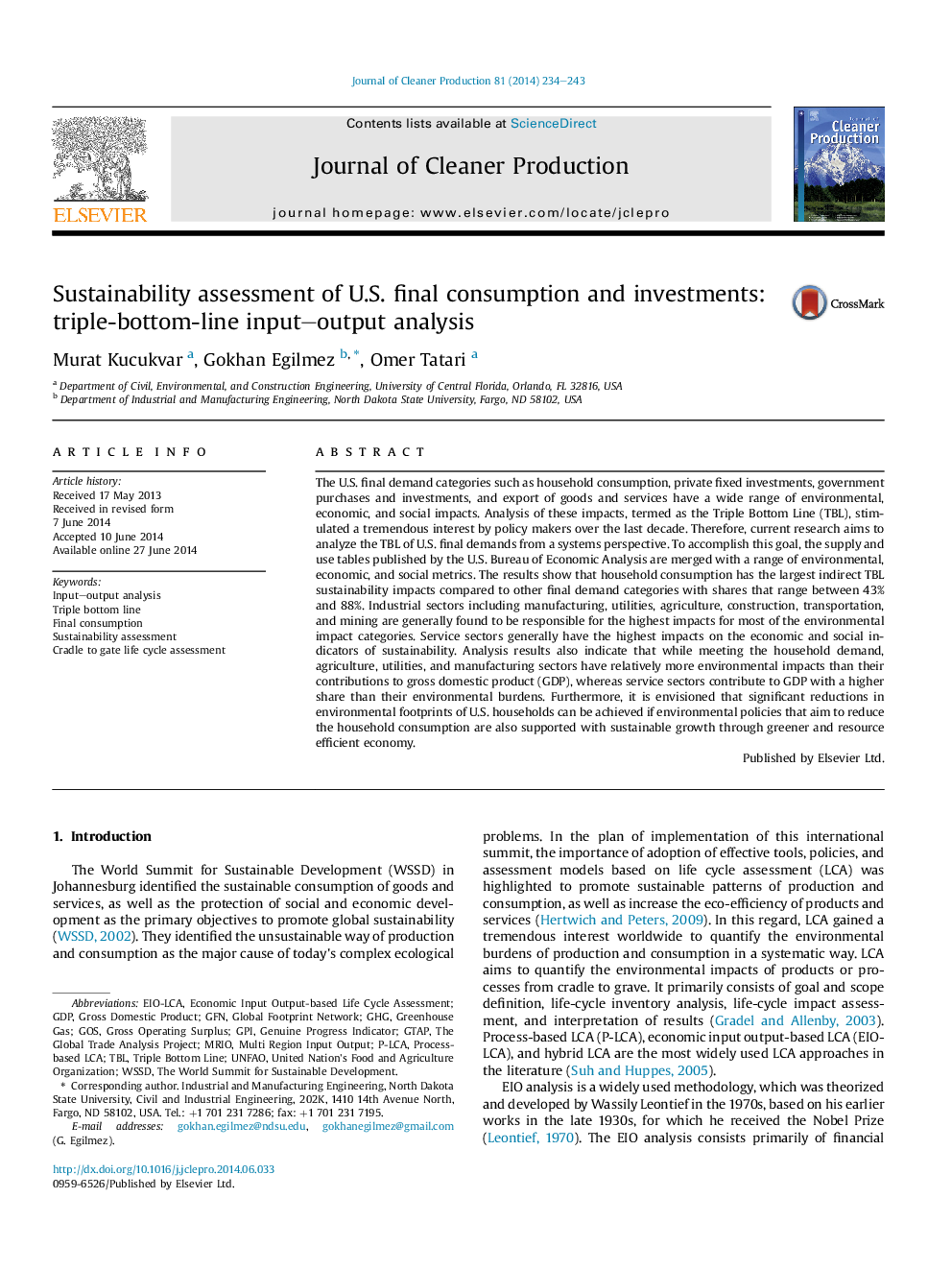| کد مقاله | کد نشریه | سال انتشار | مقاله انگلیسی | نسخه تمام متن |
|---|---|---|---|---|
| 8105864 | 1522165 | 2014 | 10 صفحه PDF | دانلود رایگان |
عنوان انگلیسی مقاله ISI
Sustainability assessment of U.S. final consumption and investments: triple-bottom-line input-output analysis
ترجمه فارسی عنوان
ارزیابی پایداری مصرف نهایی و سرمایه گذاری ایالات متحده: تجزیه و تحلیل ورودی / خروجی سه گانه پایین
دانلود مقاله + سفارش ترجمه
دانلود مقاله ISI انگلیسی
رایگان برای ایرانیان
کلمات کلیدی
GPiWSSDFinal consumptionEIO-LCAGTAPtblGFNGOSGHGMRIOSustainability assessment - ارزیابی پایداریInput–output analysis - تجزیه و تحلیل ورودی-خروجیGross domestic product - تولید ناخالص داخلیGDP - تولید ناخالص ملیTriple bottom line - خط سه گانهGenuine Progress Indicator - شاخص پیشرفت واقعیGreenhouse gas - گاز گلخانه ای
موضوعات مرتبط
مهندسی و علوم پایه
مهندسی انرژی
انرژی های تجدید پذیر، توسعه پایدار و محیط زیست
چکیده انگلیسی
The U.S. final demand categories such as household consumption, private fixed investments, government purchases and investments, and export of goods and services have a wide range of environmental, economic, and social impacts. Analysis of these impacts, termed as the Triple Bottom Line (TBL), stimulated a tremendous interest by policy makers over the last decade. Therefore, current research aims to analyze the TBL of U.S. final demands from a systems perspective. To accomplish this goal, the supply and use tables published by the U.S. Bureau of Economic Analysis are merged with a range of environmental, economic, and social metrics. The results show that household consumption has the largest indirect TBL sustainability impacts compared to other final demand categories with shares that range between 43% and 88%. Industrial sectors including manufacturing, utilities, agriculture, construction, transportation, and mining are generally found to be responsible for the highest impacts for most of the environmental impact categories. Service sectors generally have the highest impacts on the economic and social indicators of sustainability. Analysis results also indicate that while meeting the household demand, agriculture, utilities, and manufacturing sectors have relatively more environmental impacts than their contributions to gross domestic product (GDP), whereas service sectors contribute to GDP with a higher share than their environmental burdens. Furthermore, it is envisioned that significant reductions in environmental footprints of U.S. households can be achieved if environmental policies that aim to reduce the household consumption are also supported with sustainable growth through greener and resource efficient economy.
ناشر
Database: Elsevier - ScienceDirect (ساینس دایرکت)
Journal: Journal of Cleaner Production - Volume 81, 15 October 2014, Pages 234-243
Journal: Journal of Cleaner Production - Volume 81, 15 October 2014, Pages 234-243
نویسندگان
Murat Kucukvar, Gokhan Egilmez, Omer Tatari,
